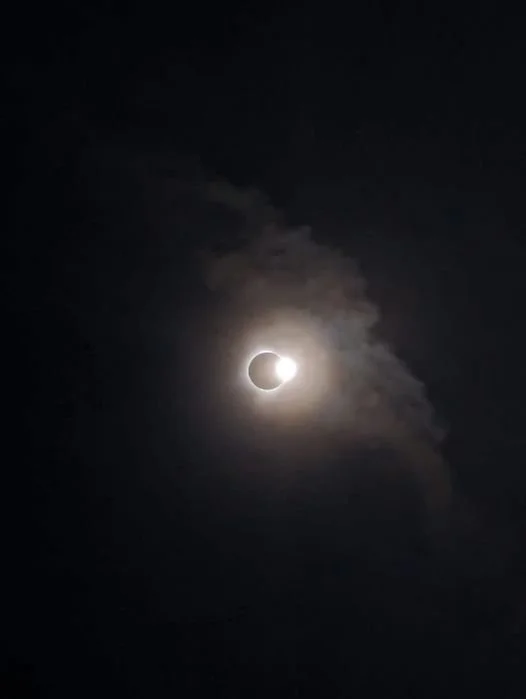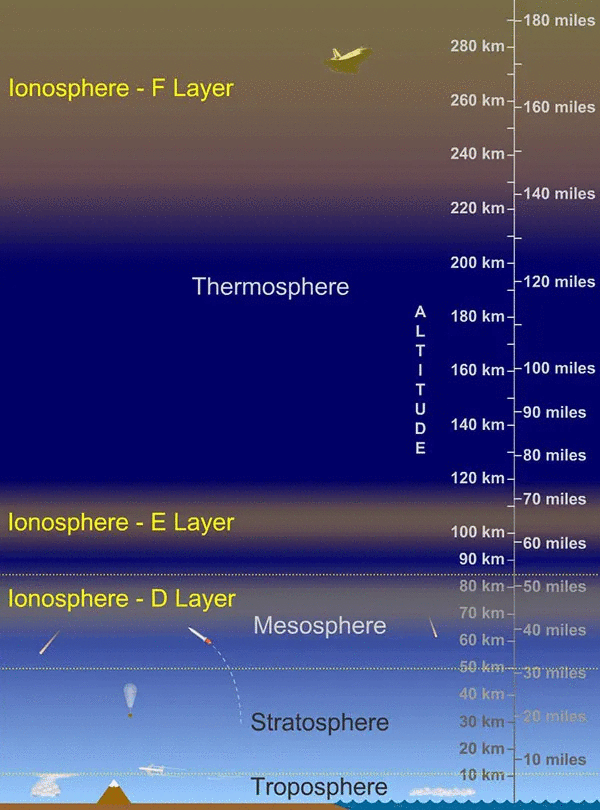What's That Sound? Loud Boom Heard During the Total Eclipse
/Image courtesy of Lindsay carter in Chatham, April 8th, 2024.
Did you hear a loud boom during yesterday’s eclipse? If so, you’re not alone! Thousands of people across Canada and the United States have reported hearing a loud noise during or shortly after totality, when the Sun started to get brighter. We’ve seen a few interesting theories circulating, but after a bit of digging, we have some answers for you.
Stand back, it’s about to get a bit sciencey in here! 😉
Our atmosphere is comprised of five major layers: the Troposphere (where we live and where our weather happens), the Stratosphere, the Mesosphere, the Thermosphere, and the Exosphere. In the higher layers, solar radiation interacts with gas molecules and atoms which lose electrons in the process, thus becoming electrically charged and are known as ions. This collective layer that covers the Thermosphere as well as parts of the Mesosphere and Exosphere is aptly called the Ionosphere. The Ionosphere has three main regions within itself, and they can get quite complicated, so we won’t go into detail with them. All that matters is that the Ionosphere exists, and it is made up of ions that can be measured and tracked by atmospheric scientists.
The Layers of the Atmosphere. Courtesy of UCAR Center For Science Education.
The last total solar eclipse that occurred over North America was in August 2017 and during this event, researchers at the MIT’s Haystack Observatory in Westford, Massachusetts and the University of Tromsø in Norway made some interesting observations. Using a network of over 2000 Global Navigation Satellite System receivers across the United States, they were able to track changes in total electron content in the Ionosphere with the passage of the eclipse. They found that the eclipse caused bow waves, similar to those that are created by a boat travelling through water because of the sudden temperature change caused by the supersonic passage of the Moon’s shadow with the atmosphere rapidly cooling and then reheating. Essentially, the eclipse causes a fast-moving temperature change, it creates waves within the atmosphere. These waves were visible on the GNSS receivers because the sudden lack of solar radiation reaching the atmosphere during the eclipse results in a sharp decline in the number of electrons found in the Ionosphere. A research team from Taiwain’s National Central University took this a step further and using the same GNSS data, found that a sonic boom was produced in the Ionosphere following the Moon’s shadow and the bow waves were the result.
Bow Waves Caused By the Moon’s Shadow During the 2017 Total Eclipse. Courtesy of MIT.
Based on these findings, it is likely that the loud noise that many heard during yesterday's eclipse was a sonic boom in the Ionosphere.
Further reading:
https://news.mit.edu/2018/solar-eclipse-caused-bow-waves-earths-atmosphere-0119
https://www.ncu.edu.tw/en/news/show.php?num=598&page=7&search_kind=12
Articles from Geophysical Research Letters:
https://agupubs.onlinelibrary.wiley.com/doi/10.1002/2017GL076054
https://agupubs.onlinelibrary.wiley.com/doi/full/10.1002/2017GL075926





